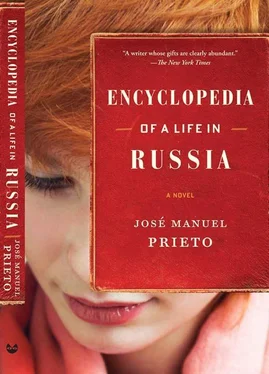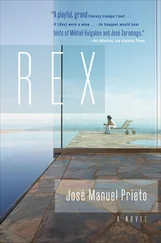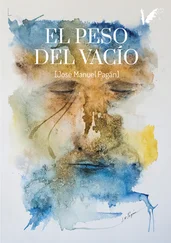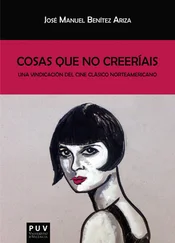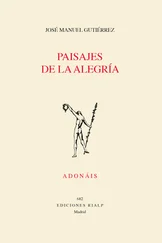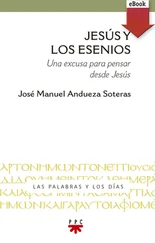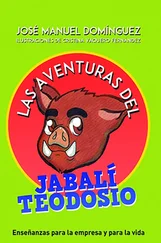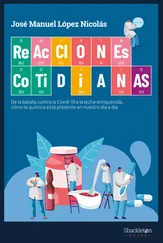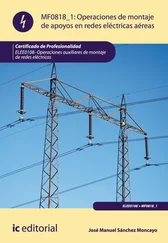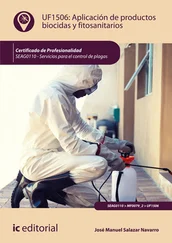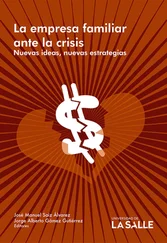I. Then, when at last one small volume of Borges — an Argentine writer and therefore suspect 4—was published, a Russian friend of mine was assailed by the terrible suspicion that Borges was not Borges, but one of the anthology’s minor poets, a word in an index. Since I came from the OCCIDENT, he brought his question to me: Was Borges no more than one of those narrow light sources that thus emerge from the trap of polarization, a weak ray that shone only in the IMPERIUM without being reflected in the rest of the world?
“A question that would have delighted Borges himself,” was my first thought, and I did not concede much importance to the incident. But the next day, I, too, fell prey to a terrible doubt and hurried to consult The Great Soviet Encyclopedia (БСЭ, 1970 edition). To my astonishment, I found two entries under Borges, with identical Christian and surnames, one—“Borges, Jorge Luis: obscure, right-wing Argentine writer, a rigid formalist whose works are of little interest”—after the other, “Borges, Jorge Luis: son of Borisov, Georgi, emigrant from Rovno, naturalized in Argentina in 1863. A deeply learned man, author of profound works of literature who, nevertheless, has found little acceptance in an OCCIDENT scourged by formalist experimentation and who had to wait for translation into Russian before gaining millions of readers and the reception that his genius merits. A progressive thinker, he participates in the struggle of the Argentine people for total independence from England,” et cetera.
OPIUM. The immense Volga and its tributaries, the gritty sand of its beaches, the boardwalks with their flower beds where no flowers grew and their bandstands for Sunday concerts by municipal orchestras were to any European capital what the actual fragrances of springtime, the sooty smell of river vapors, and the natural odors of a healthy and clean but human body were to OPIUM, the perfume Yves Saint Laurent launched that year.
The day had been warm and when night fell I strolled down to the city intending to take in some new release. I chose a seat on the last row of an almost empty cinema and spent an hour and a half on tenterhooks, ushered through the rings of cosmic dust that surrounded the inexplicable mystery of a crime, its spinning, floating mass suspended in space by forces we cannot comprehend, but there it is, we can touch it. And as I do so, I tremble from head to toe. Many summers have gone by since then and I think I may have lost this particular capacity. But that year I’d been reading tirelessly for months and was adjusted to react to the slightest stimuli: a very low threshold of response. It was easy for things to resonate deeply within me; I could be moved to tears by a story of loyalty, the hero who comes back years later and settles the score with a clean conscience. And I was much in need of pure essences, ideas uncontaminated by any hint of utilitarianism: abstract truths!
Halfway through the film, someone began vibrating a few yards away. Was it the spring climate or perhaps an emotion similar to mine? I sensed the emanations of an excellent perfume, undoubtedly French. Either it had taken half an hour to reach my nostrils or the singular emotion evoked by the film’s mystery had opened new channels within me. I imagined her as a brunette; the scent was dark and rich. For a second, I weighed the possibility of attempting an approach on the way out of the cinema, but since we were in Muscovy I would risk encountering a sunny beauty with straight, blonde hair in a cloud of this perfume clearly intended for a dark-haired femme fatale — an apparently insignificant detail that might throw the entire experience off-kilter. I had learned to withdraw, had learned from Occam that essences must not be multiplied beyond what is necessary, and I went straight home.
I. Many years later, LINDA, the story continues. I happened to be in G**, a small city in the south of France, and discovered a parfumerie, the Nuit Napolitaine. A striped awning protected the lone flask in its window from the sun’s rays and I leaned forward to get a closer look at the amber liquid within, the satin bow around the bottle’s neck. A minute later, without having made any significant discovery, I adjusted my gaze to the mirrored surface of the glass and discovered my own eyes in the terrifying nearness of the reflection and, behind me, the specular image of this city where we are now, you and I — geraniums on the balconies, clean cobblestones, my bicycle leaning against a lamppost across the street. (I was in an excellent mood. Certain movies insist that we can achieve happiness by means of a twelve-speed bicycle and a baguette.)
But there remained a matter that had always puzzled me: the relationship between what was suggested by the name on the flacon and the fragrance of the perfume itself. I asked for a sample of that fragrance in the window and tried without success to capture some special meaning as I inhaled. Only an image of a barefoot young man in a very expensive suit walking along a dilapidated dock at a beach somewhere in the south: the advertisement that had launched this perfume on the market. Try as I might, I couldn’t imagine anything but that old jetty, the reverberating sea. I had traveled to this city in search of fragrances that would be devoid of all reference, for perfumes are innately free of such things; it is we who, by christening them, endow them with a story, though we violate their essential vagueness when we attach names to them. In fact, we have no particular names for smells. We say “it smells like” and name the smell by analogy. Scents thus introduce a terrifying glissando into our representation of the world: they are as invisible as sound, without limit of duration or spatial boundary. By giving names to perfumes, to fragrances, we seek to diminish this impression, to segment the continuum of smell into precise ideas that possess relevance and modernity. Now domesticated, these scents can establish a membrane between nature (this gray city, the dirty time of year) and ourselves: the cushion of air on which we glide, inaudible.
I was thinking of you, the red-haired girl I would choose for my novel, and wanted something clean and fresh. Monsieur Baldini, the shopkeeper, assured me he had what I was looking for. He went into the back and emerged with the last remaining bottle of a very old brand, sold out years ago, that contained no musk. When the bouquet of that antique treasure filled the air, I saw the uncontrollable mass spinning before me once more and felt the same emotion. How had this perfume reached the banks of the Volga? But of course it wasn’t the same one. It was only the same base, without musk. Back in my hotel, I decanted this glass flacon, without a label, devoid of prehistory. Even I no longer remember its original name. I’ve thought of calling it LINDA. But your name, all on its own, would add nothing. I must unify these elemental lines into the complex organism of a publicity campaign and settle on its meaning, arbitrary but overflowing with emotion: the simple man who untangles the mystery of the girl’s death, confronts the murderer, and kills him cleanly, not a muscle in his face even twitching, everything I felt that day in the darkened movie house. “Do you smell that fragrance? It’s truly magnificent, it smells like you.”
(First the striped awning, then the twelve-speed mountain bike pedaling along fast, a baguette sticking out of the saddle bag. Geraniums at the windows. France? The South of France? Night, the dark mass spinning in the void. A droplet falls onto LINDA’S naked shoulder. Fade out. )
ORGANDY. The latest fashion is announced almost stealthily, a full season in advance; its manifestations are secondary and it moves out through the world as if traveling incognito. So that when, one day, from a moving car, we glimpse the striking feathery crest of a new hairstyle or see a winter scarf knotted around the neck like a cravat, we feel a start of discovery. Somewhat incredulous, we mentally review this vision until we are convinced. Yes, of course, what bliss: a narrow scarf knotted atop the overcoat collar as if it were a necktie, and in the course of the day we run into three, five fellow pedestrians, all tricked out like this, which is already an avalanche (because as soon as you notice the first manifestation, you’re immediately amazed to discover how many people are already up-to-speed on the fashion). Which hasn’t yet reached the circle of your most intimate friends and, therefore, when you arrive at that evening’s gathering transformed into a dandy, one of them, the most absurd of the lot, the one most permanently deaf to all sartorial subtlety, asks you in amazement: “Huh? What’s that necktie-scarf thingy? I don’t like it at all, wouldn’t be caught dead. .” (and he’s the one who, six months later, when no one else is doing it any more, goes on wearing his scarf that way for two more seasons). Later you doubt your own daring, wonder if perhaps you should wait a little longer and, on the way home, since it’s very cold outside and you’re afraid of catching flu, you wear the scarf in your usual manner. The next day, though, you go back to the more poetic style, the ends of your scarf flying in the wind.
Читать дальше
